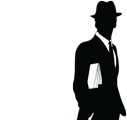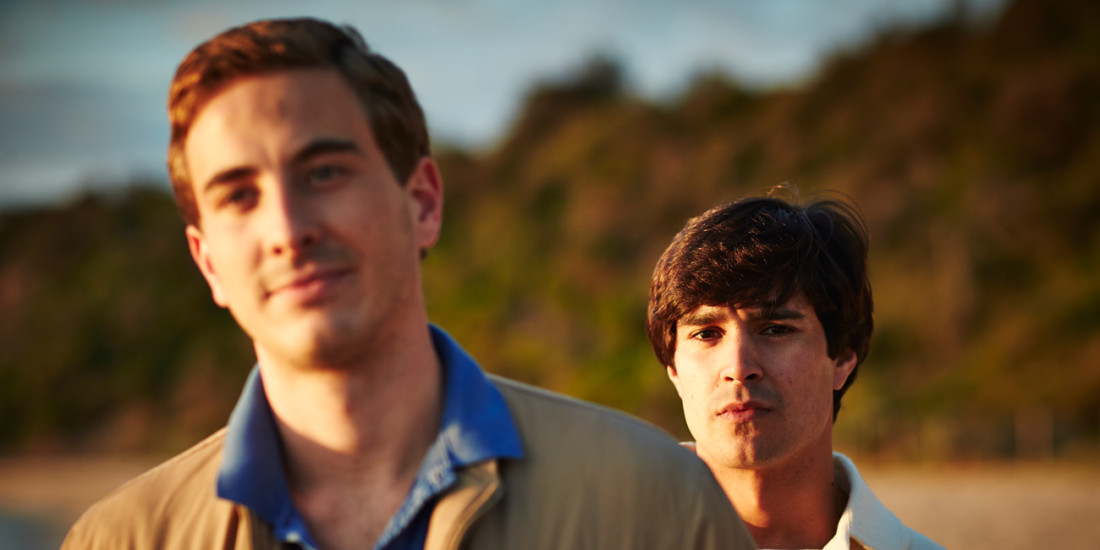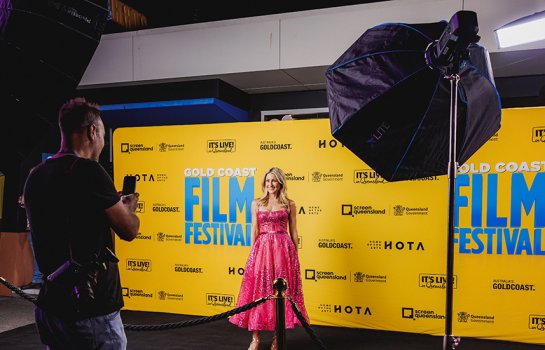Ryan Corr, actor, Holding The Man
It was Tim’s legacy to make sure this story was told and more importantly, it was heard ...
While it can certainly feel overwhelming bobbing through the ceaseless wave of new releases that bombard us in the modern world, every now and then a special creation rises up and forces us to take notice. Holding The Man is exactly that. Originally published as a dying man’s memoir of a 15-year love affair, the narrative later evolved into a stage play and now, a feature film. Tim Conigrave and John Caleo’s epic love story speaks across generations, cultures and sexuality, asking minds to question and hearts to open. Directed by Neil Armfield and adapted by screenwriter Tommy Murphy, the new film sees Ryan Corr and Craig Stott star as two young men who fall in love at an all-boys Catholic high school in the late 1970s. Before the deeply moving film opens in Australian cinemas today, Thursday August 27, The Weekend Edition had the privilege of speaking to Ryan about love, adulthood and childhood dreams.
Holding The Man is such a beautiful love story. When were you first introduced to this special tale – did you read the book or see the play?
I first got introduced to the story because the play was in season at Griffin Theatre in Sydney. I was over there in my first year of drama school, which serendipitously is the same one Tim went through, and the ripple effect of the play and what it meant to so many people – not just the production of it, but in it being on – was being spoken about a lot. I got introduced to just how much this piece of literature meant to a lot of men who had grown up in these generations – the 1970s, ’80s and ’90s – particularly those who lost loved ones during the AIDS crisis when there was less we could do about it. The story had a profound effect and our teachers were talking about it at drama school. And then to jump five, six, seven years later, I got a call asking if I’d heard of Holding The Man and I was like “Yes!” And the director Neil Armfield? “Yes!” And Tommy Murphy’s written it … I think I said at the end of that, “I want to go and get this!”
What was the audition process like?
I really got out with that passion to be part of the process and story from the get-go. We went through a really arduous audition process. I don’t know the exact number but I think I did somewhere between ten and 16 auditions, spanning different states and even countries. We ended up in London above the West End – I was over there shooting in Manchester and Craig Stott had come in from LA and a couple of other guys had come from Sydney and Melbourne to meet at a little office to do the final auditions. Neil’s a very stringent auditioner and very detail oriented. What was vital to this film was that we found the essence of these two boys and that the two guys playing them had a chemistry that could represent such wonderful love.
We heard that Neil said “That’s Tim” the very first time he saw your screen test …
He told me that at the wrap party when we’d finished the film! And I was like, “Well with hindsight Neil, thanks. Way to make me blush, you knew it from the moment I saw you!” It was actually the longest audition process I’ve ever been through, but I honestly think we’re all the better for it. Neil is a godfather of theatre in Sydney and the strengths of his incredible pieces are the cast, his deep understanding of humanity and his emotional intelligence, which helps him find qualities in people that match his characters.
What appealed to you about the role of Tim?
I only ever went in for Tim; I think I’m more suited to him. But it was the piece – it’s very rare that you get the opportunity to be part of something that is not a fictitious character. It’s someone’s life, it’s someone’s loved one, it’s someone’s son, it’s someone’s friend. When we started to make this film, everyone who found out we were making it – friends, people who were in drama classes with Tim, ex-lovers – came out and asked how they could help us tell the story. There was a real shroud of magic. Tim said “only magical people get talked about” and everyone who knew or was influenced by these boys really welcomed us with open arms and helped us try to make this story special. That doesn’t come when you get a character brief and you have to formulate a biography. The other responsibility to get right was what Tim and John from the book meant to people – there were so many people who had read this and it was the first piece of literature they could connect to, or it gave them the courage to come out or have a conversation with their parents. It meant so much to so many people. I jump at the opportunity to be part of things that fall so in line with what I believe in.
What do you hope the audience will take away from watching this film? What would you want them to feel, question or even just start a conversation about?
It clearly connects to the national debate going on about the status of gay marriage. But beyond that, it is really just a beautiful love story that I think everyone can connect with. It’s a story of passion and love. Tim’s sister said it gave him a reason to live and his brother said it willed him to live – to get this story down. It was his life’s legacy to make sure this story was told and more importantly, it was heard.
Even though you were involved in just about every scene, was it overwhelming when you saw the completed film in its entirety?
Always overwhelming! Craig and I just held each other’s arms really, really tight. You’re so attached to the script – and particularly our version of the story – which is structurally very different to the play, which is different to the book. It was really getting a chance to see Neil’s vision and the way all the creatives had come together. There was enormous pride in the room; I think we all knew it was very special and very beautiful. We had come some way to represent the memory. As an actor, you don’t like watching your own work because you can pick it apart, but in a wonderful way that ego element was removed because it was about representing something that was much bigger than us. Who cares what your six-foot nostril looks like – it’s about doing the essence of the boys justice. It was the biggest compliment we could receive when the family came up to us after and said thank you and asked to remain connected in their lives. We’ve formed something very special with those people now – and it makes it a much more special experience than just making a film and building a character from the ground up.
Let’s talk about you for a moment, what were you like as a little tacker growing up in Melbourne?
I was an urban BMX kid in East Doncaster. My kindergarten was 700 metres down the road, as was my primary school, as was my high school. I was one of those kids at school who used to give the teachers the shits because they’d often say “Ryan, shut up” or “if he just applied himself” but then I’d do pretty well academically. So I was a source of massive frustration for some people and then completely under other ones’ wings. I’ve had some really great mentors and teachers in my life – at primary school, high school, drama school and university – people who saw a spark in me and really put in more effort.
Have you always wanted to pursue acting?
When I was in grade 5, I got the lead in the grade 6 musical – now I couldn’t sing, I’d never danced, but I danced around in my lounge room the night before and walked into the basketball court and gave it one hell of an audition. I got the role – and that was unheard of at Milgate Primary School! I think I put on a little faux British accent and what I found was my parents and teachers who had been pushing me to do my best for a long time all came up after the show, usually smiling through tears, and said, “Well done mate, that was really fantastic”. As a young man, that felt really wonderful. So after that I went and joined the little Dynamite Drama group behind McDonald’s in Doncaster …
When and what was your first professional acting role?
The first time I really did a professional job was when I was 13 years old and they were selecting for a kids’ show called The Sleepover Club. They asked, “Can you sing?” and I said no, so they said “Good, sing”. I think I sang Backstreet Boys, or something that would have been a favourite at the time. And when I finished, they said, “Right, you can’t sing. But the fact that you did it after I asked you to is exactly what we’re looking for”. They cast me after a four- or five-stage audition process and I moved to Queensland and lived in an apartment with eight other kids my age. Kate Woods and Arnie Custo and all these directors taught me that if you bring choices or something extra to the characters and the days that you’re shooting than what’s on the page, they’ll keep employing you. They really facilitated and helped nurture an understanding of the craft and what our function is as actors to serve these stories on set. That, as a young man, was very influential to me. And I feel very blessed to have had a career since.
If you could give that teenager just starting out any advice about career or life, what do you think you’d want to say to him?
Look, I’m a bit of a hopeless romantic and a dreamer, so I’d probably say follow your dreams and do exactly what you want to do. I had the most wonderful, supportive parents – it must have been so unusual for them to have a 13-year-old son move interstate and do school out of a truck. But I think because of how passionate I was, they stood behind me and allowed me to follow my dreams, and I’m forever thankful to them for that. So if I had the opportunity to go back and speak to any child, not necessarily myself because my parents did that for me, I would say to do what you believe in, devote yourself to it, work hard and stay dreaming.
There have been a few ups and downs in your life over the past few years, but what’s the best thing about being you right now? What’s making you happy to be alive?
Oh, so many things! I think I’m just falling into a part of my adulthood where I’m aware of the two feet I have on the ground, the wonderful friends I have around me, my family, I’m very in love and I’ve got work opportunities that might have taken roughly 13 years to get to, but now creative and producing directors are approaching me and saying “We’d like you to be part of this process” as opposed to me putting my hand up, saying “Can I please have a job, sir?” It means you’re a much more active part of the creative process and you can pick and choose projects you believe in and stories you want to be a part of. I think in any career when you start to feel the respect like that, surrounding what you do, it’s pretty wonderful. So there’s not a lot that’s making me unhappy at the moment!
Finally, what’s your personal definition of ‘success’?
Being happy in the process of achieving your personal, professional and family dreams. That’s so broad – but if you can find happiness in the creation of that world for yourself and remember to be present and have gratitude for where you’re at, I think that’s success because you’ve got many years that are a process of success, as opposed to an ultimate end point. And I think ultimately, success is happiness.





